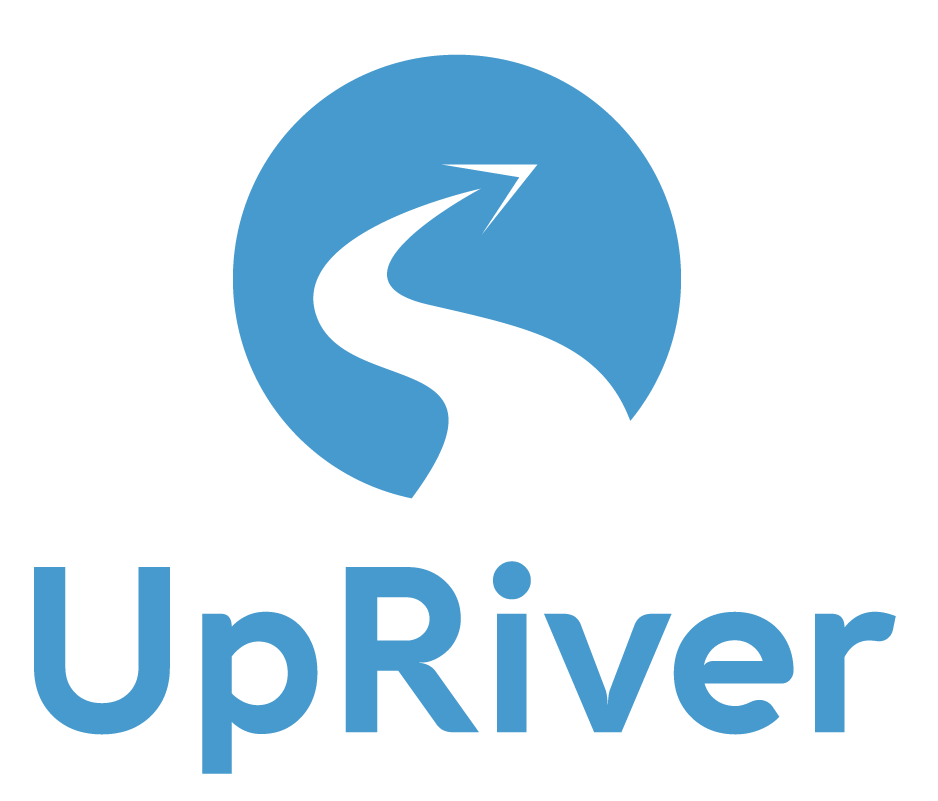TL;DR: Fasting offers benefits to the human body that on the whole improve one’s health. As these benefits include hormone regulation, inflammation reduction and increased levels of autophagy etc., to optimize one’s health, fasting in its many forms is an important addition to a biohacker’s life.
Welcome back UpRiver, biohacker.
Today we will be discussing one of arguably the most important and straight forward biohacks that everyone can begin to implement at this very moment. As you read in the title of this article, today we will be exposing the novice to the world of fasting, offering the intermediate new methods of fasting, and reminding the advanced of the true benefits of incorporating fasting into one’s lifestyle.
With that said, we will now delve into what fasting actually is, for those who are new to UpRiver or the field of biohacking in general.
Introduction
As mentioned, fasting is an essential tool if optimal health is your objective.[1] While many people have heard or read the term (perhaps via their first meal of the day i.e. break-fast), many do not actually know what fasting as a practice calls for. Merriam-Webster defines fasting as either “the abstaining from food” or “to eat sparingly.”[2] This is a perfect definition from which to start, but for the practical application of fasting to be effective to the biohacker, we need to understand why, when, and ultimately how one should approach this concept. These are the exact questions this article aims to address. Therefore, without further ado we jump into the first question…
Why?
Fasting promotes a whole host of good things in the body. This is likely due to our bodies both historically and prehistorically having to adapt to a scarcity of food, followed by large sessions of eating. We would go for days without anything and then we would catch something, scavenge things or discover an area rich in foods and nutrients.
Today however, food is essentially abundant in every direction we look; and what’s more is that most of it is of dense caloric value, which as we know is not necessarily a good thing. The first real benefit we will discuss is heightened insulin sensitivity. [3]

Insulin in a lot of senses is the single most anabolic substance in the body. This means that it is largely responsible for all the physiological growth our bodies undergo as a whole. As this is a “101” introductory-style article, we won’t get too scientific with it, but suffice to say that insulin is basically responsible for pushing the nutrients we ingest to their appropriate places. [4] This includes all muscles, organs, and other various tissues. Without insulin, our bodies would fail to work as they are supposed to and the food we ingested would serve no beneficial purpose. [5]
As in the modern world we live in a culture that seems to be by and large alright with the over consumption of foods and calories, we now increasingly live in bodies whose resistance to insulin is on the rise.[6] We eat more and more and our bodies are no longer as sensitive to the hormone that puts food where it needs to go. This is ultimately what we mean by a decreased insulin sensitivity. Fasting though, has been shown to increase insulin sensitivity in otherwise healthy individuals and also reverse a low insulin sensitivity in those who have exhausted their insulinogenic response.[7] What this means for you, is that fasting can help your body do a better job of putting food to where it needs to go and thus lowered stored body fat, which was retained as a response to poor usage of caloric energy.
The next big health benefit that fasting offers is with respect to your body’s natural process of disposing of old cellular matter and producing new cells in their place.[8] Most, if not all cells in your body, have a built-in instruction to essentially self-destruct when they either are performing poorly, or at the end of their respective lifecycle. Interestingly enough though, this process does not only occur to the cell as a whole, but it also occurs to components of the cell throughout its lifespan. When a cell engages in these behaviours, this process is referred to as “autophagy.”[9]
Put simply, a cell kills off the components of itself that are slowing down its respective biological function. Although your body is doing this constantly throughout its life, there are times where this process is at its most efficient. You guessed it, one of those times is when the body is in a fasted state. In fact, studies have indicated that if the body remains in a fasted state for 24 hours, the autophagic process is increased by 300%! [10] Quite the staggering number. Now, with two of the largest health benefits presented as to “why” one should regularly fast, let’s explore when one should fast.
When?
Fasting can be introduced into one’s regular schedule in a variety of ways (which will be discussed in the next few paragraphs). When it comes to optimizing a fasting schedule, luckily, there does not seem to be a consensus on if there is a time of day that offers superior advantages to any other particular time. The reason we say “luckily” is because this means ultimately that you can schedule your fasting routine into your ordinary routine at large. If you’re someone like me, you prefer to wait until later to eat as dinner is more appealing to you than breakfast (yes, I realize that dinner, in this case, is technically speaking my break-fast), then you can do that. Conversely, if you’re on the other side of the aisle and you wake up ravenously hungry, then perhaps your preference would be to calibrate your eating schedule to one that favors morning consumption over evening. In any case, these points do inevitably raise the next question, which is:
How?
When it comes to scheduled and regulated fasting, there are really 4 approaches one can choose to take. While the research does seem to slightly favor one method over the other three, again, they all offer similar benefits. Also, it is important to keep in mind that the benefit of introducing scheduled fasting to your life will be a huge improvement in general health over time, and as such, one shouldn’t concern oneself too much if one way or another doesn’t suit them, especially if another one does. Fasting is good full-stop. In any case, below are the Four realistic options you can choose from when selecting which suits your lifestyle the best:
- Intermittent fasting (IF8): 8 hours eating; 16 hours fasting
- Intermittent fasting (IF6): 6 hours eating; 18 hours fasting
- Intermittent fasting (Warrior Diet): 2 hours eating; 22 hours fasting
- 24+ Hour fasting: Once every 7-10 days; fast a complete day+
Now, we did mention above that the autophagic process was increased by 300% when doing the fourth option enumerated above. However, don’t let this fool you. The other options are very valuable as well. In fact, there is some disagreement in the community about which is better. While the 4th option boasts that big statistic, some have argued that it’s actually more valuable to have your body in a routinely increased state of autophagy.[11]
When it comes to the other options, the benefits really are down to preference. It could be reasonably speculated that the autophagic process is heighted the longer you leave your fasting window to stand, but remember that the choices here are largely preference and that simply by introducing fasting to your life, you will reap benefits that the vast majority of the global population is simply missing out on.
Author’s Motivation
Fasting is actually something that I initially came across in my bodybuilding ventures. I stumbled across it before it became widely popular and was being preached by all those fitness “gurus.” I attempted it and as I was already on a fairly tight caloric restriction (a weightloss intended phase known in the bodybuilding community as “cutting”), I actually found some good benefits from it. But I didn’t truly realize how great fasting was until my fascination with biohacking as a whole encouraged a deeper look into it as well of analysis of my own body. The initial benefit I found was that I would be more satiated throughout the day as I was essentially eating all my calories quickly. What I would later notice is that my weight loss plateaus kind of disappeared. Now, I’m not trying to preach fasting to you beyond what the science indicates, but as something we do here at UpRiver, I also want to provide you with my personal anecdote.
Today looking back, I speculate that the reason for my continued weight – and more specifically fat – loss was due to training my insulin sensitivity further than what it already was. The next big benefit I definitely felt, which I attribute likely to an increased and routinely heightened autophagic process, was a dramatic increase in energy, both physically and mentally. This was noticed very obviously as I was, at the time, consuming a measly 1800 calories a day, all while doing high intensity cardio in the morning and weight training again that night, mind you. So, the increase in energy – while all other factors other than the introduction of fasting, remaining constant – was hugely apparent. This altogether, lead me to look more into the science, and my experience with fasting was entirely supported. Out of my delight at the time of my growing intrigue into the sphere of biohacking, my incentive to share my findings lead me to the writing of the article you now read. Hopefully, your experience with fasting is as rewarding as mine; because whether or not you feel better quickly (despite obvious hunger when you first start out), the benefits are there and you’re indeed receiving them.
Conclusion
Herein, we’ve presented you with a lot of information. Especially for a 101 article, and especially if this is your first real engagement with fasting and its subject matter. To start off, we recommend that you try each of the methods of fasting in order to see how your body fares. It’s also important to recognize that daily (or weekly, should you choose the 4th approach) fast might very well be a difficult task to accomplish the first or even second time around. In other words, changing bodily eating habits is a tall order and requires commitment before results actually begin to present themselves. With that in mind though, rest assured that the benefits are in fact present from the week and even the day you begin implementing a routine fast. As one of the most accessible biohacks around, we highly recommend that you give fasting a shot and that you explore more resources on UpRiver, to learn more about food, eating habits, preparation methods and biohacking more generally.
Please feel free to visit our discussion forum HERE, which is heavily frequented by the creators of UpRiver, and let us know about your experiences or ask any questions that may arise from the reading of this article or any other.
Best of luck biohacker, and as always, keep moving UpRiver.

REFERENCES
[1] https://www.healthline.com/nutrition/10-health-benefits-of-intermittent-fasting
[2] https://www.merriam-webster.com/dictionary/fasting
[3] https://www.health.harvard.edu/blog/intermittent-fasting-surprising-update-2018062914156
[4] https://www.diabetes.co.uk/body/insulin.html
[5] Ibid.
[7] https://www.health.harvard.edu/blog/intermittent-fasting-surprising-update-2018062914156
[8] https://www.ncbi.nlm.nih.gov/pmc/articles/PMC6257056/
[9] Ibid.
[10] http://www.tandfonline.com/doi/full/10.4161/auto.6.6.12376
[11] https://www.sciencedirect.com/science/article/pii/S1550413117306083
